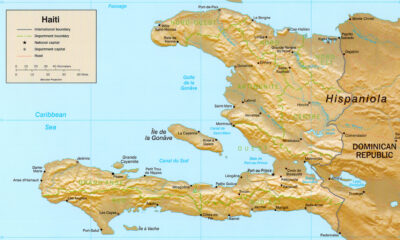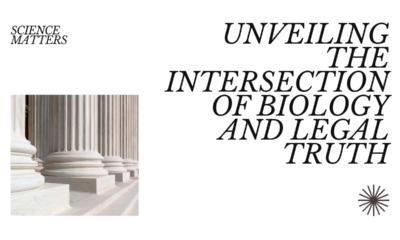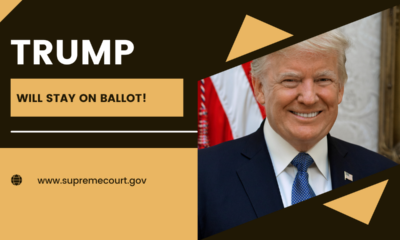Let's Talk
Elon Musk challenges WEF
Elon Musk directly challenged the World Economic Forum this week, criticizing it for trying to be a one-world government.
Elon Musk has repeatedly challenged the legitimacy of the World Economic Forum (WEF). He delivered the most serious criticisms of the WEF of his career. When he did that, he invalidated many assumptions people might make from watching his research and development efforts.
Examples of Elon Musk challenging the globalists
The Forum opened its annual meeting on Monday (January 16). Klaus Schwab, the founder and current Chairman, opened with a speech calling on attendees to “master the future.” (Source: Liberty Unlocked.) One Twitter user tweeted an embedded video of Schwab’s speech, and another user asked for an explanation of what the Forum does. Whereupon Elon Musk asked,
Are they trying to be the boss of Earth?
The next day, Disclose TV tweeted video of a panel discussion in which Schwab mentioned something he called a “global collaboration village.” Yesterday Musk rounded on the WEF in direct reply to that tweet.
WEF is increasingly becoming the unelected world government that the people never asked for and don’t want.
Separately, Glenn Beck tweeted his interview with Michael Shellenberger, who has prepared several Twitter Files threads. Beck quoted Shellenberger as calling Musk’s purchase of Twitter “a major roadblock for the World Economic Forum’s agenda.” Musk appeared to confirm this, saying that:
Citizen journalism is vital to the future of civilization.
More recently he left this poll on Twitter, asking whether users thought the WEF should control the world.
How Musk’s history might have suggested sympathy with globalism
The history of Elon Musk might at first suggest sympathy with globalism and the goals of the WEF. He founded a company (Tesla) that makes electric vehicles, solar collectors and tiles, and storage batteries – residential, commercial, and grid-scale. In line with this, Musk has repeatedly stated a goal of making fossil fuel use unnecessary. (However he roundly criticized Germany for curtailing its nuclear generating capacity.)
Another Musk company (Neuralink) is working on microcircuits to interface directly with the human brain. Neuralink plans to use this technology for prosthetic limb control and for direct human-computer interfaces. Critics have often expressed fears that he is facilitating a “movement” called transhumanism. That, and turning ordinary human beings into cyborgs.
A third company, “The Boring Company,” is trying to develop high-speed deep tunnels to carry passengers and freight. This would serve two purposes:
- Relieving traffic congestion on the surface, and even removing (or shifting) a source of pollution, and
- Obviating airline travel, at least overland.
True enough, Boring’s tunnel technologies could never directly compete with overseas air travel along the same routes. But it does appear manageable enough to support a Great Circle tunnel system that could eventually connect almost all the civilized world. (With one insurmountable exception: the Hawaiian Islands. Indeed Senator Maisie Hirono, D-Hawaii, criticized Rep. Alexandria Ocasio-Cortez, D-N.Y., for suggesting the total abolition of air travel, overland and overseas.)
A break with globalists
But this week’s statements by Elon Musk suggest that he is through with globalists. This might surprise most observers – except those who examine closely the other major industry he not only penetrated, but almost reinvented.
Elon Musk founded the Space Exploration Company (SpaceX) to support making humanity “multi-planetary.” Thus far he has concentrated primarily on developing partially and eventually completely reusable rocket ships. Already he has reduced launch costs to the lowest in the industry, while enhancing reliability. He also has developed the world’s first low Earth orbit Internet satellite network.
The problem for the globalists is that these things make a government for all humanity more difficult to achieve. Globalism preaches permanent interconnection and interdependency. “Self sufficiency” is foreign to globalism. But self-sufficiency is a key feature of the sort of colonies Musk wants to plant on Mars. And universal accessibility – with distributed connectivity – lies at the heart of his Internet satellite network.
But Musk’s acquisition of Twitter probably forced the final break. The Twitter Files represent the most obvious reason for such a break. In addition, certain authorities have tried to force him to continue Twitter’s censorship of political opinion. Not only has he refused, but now several advertisers, who thought to break with him over that refusal, now seem to be coming back.
All of which suggests that Elon Musk’s break with globalism, and the tyranny that goes with it, was inevitable.
Terry A. Hurlbut has been a student of politics, philosophy, and science for more than 35 years. He is a graduate of Yale College and has served as a physician-level laboratory administrator in a 250-bed community hospital. He also is a serious student of the Bible, is conversant in its two primary original languages, and has followed the creation-science movement closely since 1993.
-

 Executive2 days ago
Executive2 days agoJanuary 6 case comes down to selective prosecution
-

 News2 days ago
News2 days agoRolling the Dice on Republicans: Has the Right Become Delusional?
-

 Civilization23 hours ago
Civilization23 hours agoPresident Biden Must Not Encourage Illegal Mass Migration From Haiti
-

 Executive1 day ago
Executive1 day agoWhy Fatal Police Shootings Aren’t Declining: Some Uncomfortable Facts
-

 Guest Columns24 hours ago
Guest Columns24 hours agoWhat Was Won in No Labels’ Crusade
-

 Executive16 hours ago
Executive16 hours agoBiden ballot woes continue
-

 Entertainment Today1 day ago
Entertainment Today1 day agoWaste of the Day: Throwback Thursday: Millions Went To Video Game ‘Research’
-

 Civilization2 days ago
Civilization2 days agoBiology, the Supreme Court, and truth








